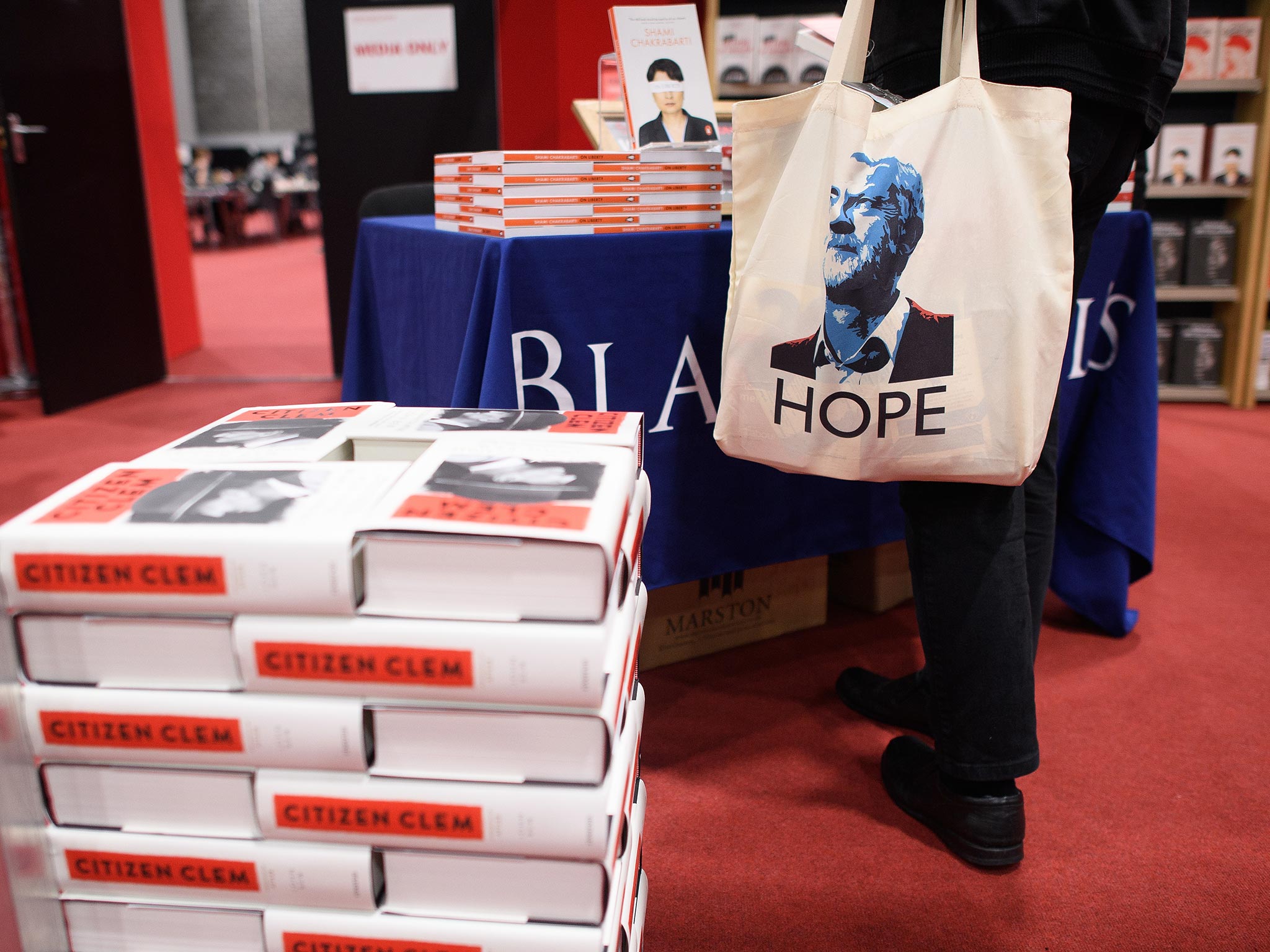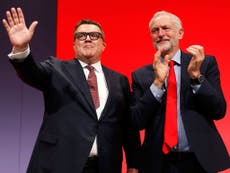I've never known a party conference season like this one – British politics is about to change forever
This week felt different to any other September gathering. There was a deeper understanding that the world has changed dramatically and traditional party politics can’t answer the anxieties this has thrown up

There has never been a Labour Party conference like this one. The media may focus on splits within the party hierarchy, but what I noticed from the conference floor was the desire to discuss new ways of thinking about society, politics and our country.
Political parties are frustrating places for campaigners. The US-style annual convention, adopted in the UK during the last decade, offers little space to challenge or change policy. Campaigners usually spend their time sitting on stalls, holding fringe meetings with sympathetic MPs and making the most of the free wine at evening drinks receptions.
But this week felt different. There was a deeper understanding that the world, our economy and our society, has changed dramatically. Traditional party politics can’t answer the tensions and anxieties this has thrown up.
Over the last four days, Labour delegates have begun to grapple with what this means for their party – now the biggest political party in Europe. So what have we learned at the end of it?
The immediate battle is immigration. The vast majority of delegates campaigned to Remain in the EU, but they’ve taken different lessons from the Brexit vote. Some of the most committed to the EU now appear keen to ditch one of its more progressive policies: freedom of movement. If we’re interested in migrants’ rights and extending free movement in post-Brexit Britain, the Labour Party will be an important battleground in breaking the emerging consensus on the need for immigration controls.
The second issue is how we work together.Fringe events arguing for a ‘progressive alliance’ of centre-left parties an were packed. There seems to be widespread recognition that our existing political system is dying on its feet. We need change.
This change in attitude goes beyond Westminster politics. We need a new kind of welfare state and a new kind of public sector too. On Tueday night, a meeting on universal basic income was packed full and addressed directly by Shadow Chancellor John McDonnell. Two years ago, such a meeting would have had a bigger panel speaking than audience to listen.
Why the change? Sparked by commentators such as the journalist Paul Mason, there’s a growing belief that our welfare state is based on a economic model that’s lost forever. Technology is undermining work and self-employment is growing.
The Labour Party as a political force still harks back to its heyday, when most of its supporters were employed in permanent work, usually in industry. Today’s economy raises bigger questions. Should we redesign welfare around how more and more people actually live? A universal basic income could help change our view of work as a ‘moral good’, offer security to people who are self-employed, and allow us all the ability to spend more time studying, caring or creating.
Of course, this requires changes in the global economy itself, and in particular governments’ ability to intervene and regulate on behalf of citizens. Here, Labour headline policies have dramatically changed since Jeremy Corbyn became leader. We heard new ideas on trade, the environment, tax and investment.
The leadership spelled out its opposition to trade agreements like the US-EU trade deal TTIP and other trade deals which encourage a ‘market knows best’ mentality. Instead, a new trade framework was established to prioritise human rights, the environment and democratic accountability. On climate change, we were promised a break on the power of the “Big Six” energy companies by creating hundreds of local, public energy companies, being supplied by 1,000 new energy cooperatives. A truly democratic energy system.
But too much was left out. Most obviously, there was no initiative on the world’s most appalling conflict in Syria. More needs to be said about building a new food system, including protecting small farmers.
There are reasons for hope, though. Up the hill from the conference centre, thousands of activists took part in a separate 4-day event, organised by Corbyn’s grassroots support group Momentum but sold as a wider attempt to build a new world.
Sitting back and waiting for one party to be elected won’t cut it anymore. Policies cannot simply be enacted from above without the mobilisation of a citizenry. This will be very tough, but in all my years of coming to party conferences, I have never felt such a willingness to attempt it.
Nick Dearden is the director of Global Justice Now


Join our commenting forum
Join thought-provoking conversations, follow other Independent readers and see their replies
Comments